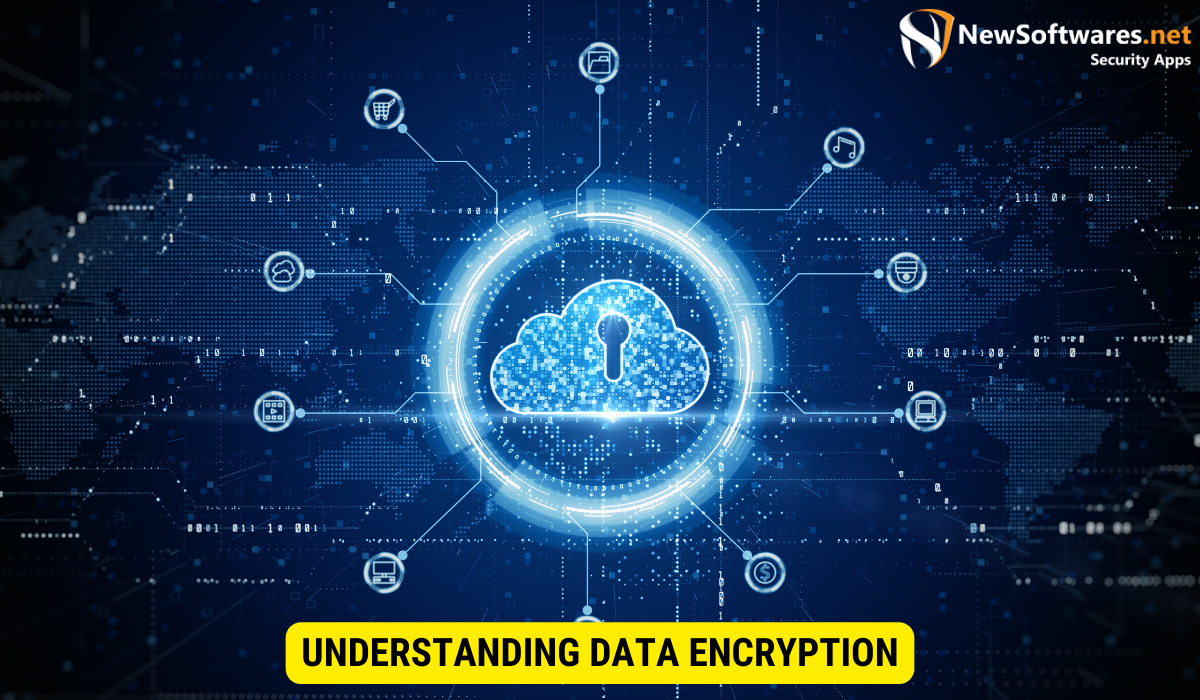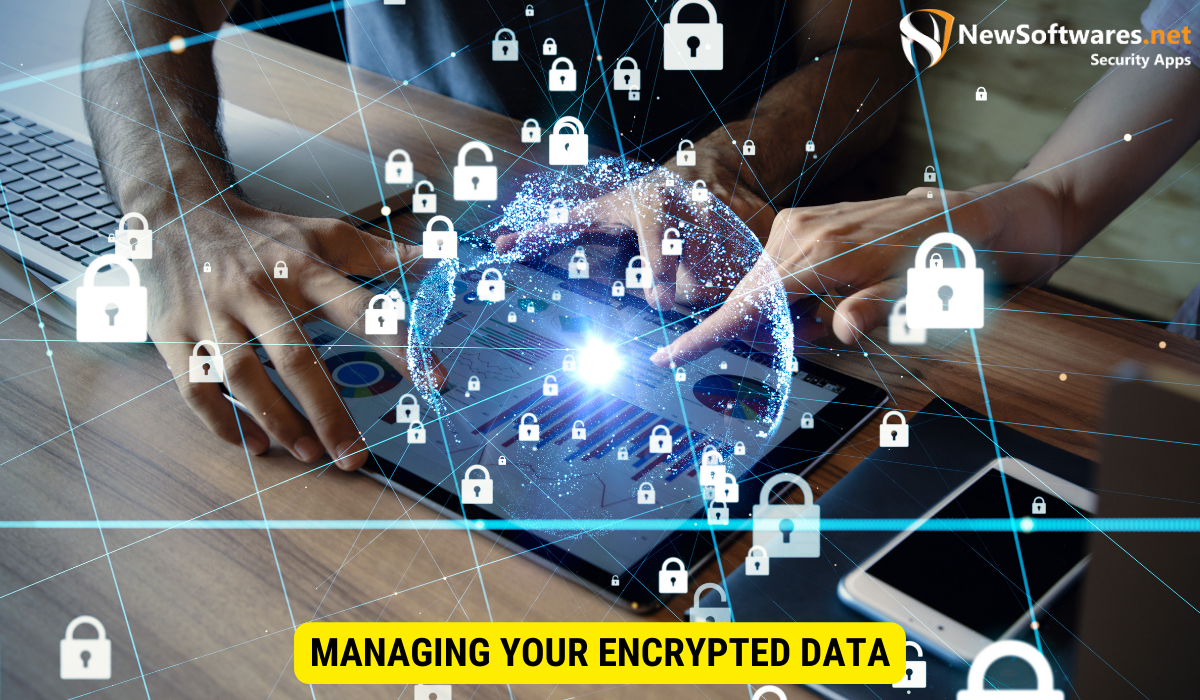Encrypting data in Ubuntu is crucial for safeguarding sensitive information. This article provides a comprehensive guide, from understanding data encryption principles to preparing your system, installing encryption tools like LUKS and eCryptfs, managing encrypted data, and troubleshooting common issues. Protect your data on Ubuntu with these essential encryption steps.
Data encryption is a critical feature of protecting sensitive data, and Ubuntu provides several tools to ensure the security of your data. Whether you are a beginner or an experienced user, this article will guide you step-by-step through the process of encrypting your data in Ubuntu.
Understanding Data Encryption

Data encryption is the process of converting information into a form that is unreadable to unauthorized individuals. This ensures that even if your data falls into the wrong hands, it remains protected. Encryption is crucial for safeguarding sensitive data from theft, unauthorized access, or data breaches.
When it comes to data security, there is a constant battle between those who want to protect sensitive information and those who seek to exploit it. Data encryption is a powerful tool that helps tilt the scales in favor of security. By transforming data into an unreadable format, encryption provides an additional layer of protection, making it extremely difficult for unauthorized individuals to make sense of the information.
Imagine a scenario where a hacker gains access to a company’s database. Without encryption, the hacker would have free rein to exploit the data, potentially causing significant harm to individuals and organizations. However, with encryption in place, the hacker would be faced with a seemingly impossible barrier. The encrypted data would appear as a jumble of characters, rendering it useless without the decryption key.
Importance of Data Encryption
Data encryption plays a vital role in ensuring the confidentiality and integrity of your information. It prevents unauthorized users from accessing or deciphering the contents of your data. Furthermore, encryption also safeguards against data tampering, ensuring that the data remains unchanged during transmission or storage.
Confidentiality is a fundamental aspect of data security. Whether it’s personal information, financial records, or trade secrets, keeping sensitive data confidential is essential. Encryption provides a means to achieve this confidentiality by transforming the data into an unreadable format. This ensures that only authorized individuals with the correct decryption key can access and understand the information.
Integrity is equally important when it comes to data security. It ensures that the data remains intact and unaltered throughout its lifecycle. Encryption helps maintain data integrity by providing a way to detect any unauthorized modifications. By comparing the decrypted data with the original, encrypted version, any discrepancies can be identified, alerting the user to potential tampering attempts.
Basic Principles of Data Encryption
Data encryption relies on complex algorithms to scramble information into ciphertext, making it unreadable without the correct decryption key. The two types of encryption are symmetric & asymmetric encryption. Symmetric encryption uses identical key for both encryption and decryption, while asymmetric encryption uses two unlike keys – a public key for encryption and a confidential key for decryption.
Symmetric encryption is like having a single key that can both lock and unlock a door. The same key is used to transform the original data into ciphertext and then reverse the process to decrypt it back into its original form. This simplicity and efficiency make symmetric encryption a popular choice for securing large volumes of data.
On the other hand, asymmetric encryption adds an extra layer of complexity and security. It involves the use of two mathematically related keys – a public key and a private key. The public key is widely distributed and used for encrypting the data, while the private key is kept secret and used for decrypting the data. This approach allows for secure communication between parties without the need to exchange a shared secret key.
Understanding the principles of data encryption is crucial for anyone involved in data security. By grasping the concepts behind encryption algorithms and the different types of encryption, individuals and organizations can make informed decisions about how to protect their valuable information.
Preparing for Encryption in Ubuntu
Before you start encrypting your data in Ubuntu, there are a few essential steps to ensure a smooth process.
Encryption is a powerful tool that can help protect your sensitive information from unauthorized access. Whether you’re encrypting personal files or securing confidential business data, taking the time to properly prepare for encryption is crucial.
Checking System Compatibility
Before encrypting your data, it’s crucial to verify that your system supports encryption. Ubuntu offers built-in encryption options, so most modern systems should be compatible. However, it’s always a good idea to check the system requirements and any specific recommendations from Ubuntu or the encryption tool you plan to use.
One important factor to consider is the amount of available storage space on your system. Encryption can increase the size of your files, so ensuring that you have enough free space is essential. Additionally, some encryption methods may require specific hardware capabilities, such as a Trusted Platform Module (TPM), so it’s important to check if your system meets these requirements.
Another aspect to consider is the performance impact of encryption. While modern systems are generally capable of handling encryption without significant slowdowns, older or lower-end hardware may experience a noticeable decrease in performance. It’s important to weigh the benefits of encryption against any potential performance trade-offs.
Backing Up Your Data
Prior to encryption, it’s essential to create backups of your important files and data. Encrypting your data adds an extra layer of security, but it also means that losing your encryption key could lead to permanent data loss. Regularly backing up your data ensures that you have a safe copy in case of any unexpected issues.
When creating backups, it’s important to consider the storage medium and location. Storing your backups on an external hard drive, cloud storage, or a separate network-attached storage (NAS) device can help protect against data loss in the event of hardware failure or theft.
It’s also a good idea to test the integrity of your backups by restoring a few files and verifying that they are intact. This will give you peace of mind, knowing that your backups are reliable and can be restored if needed.
Furthermore, consider the frequency of your backups. Regularly updating your backups ensures that you have the most recent versions of your files available. Automated backup solutions, such as using backup software or setting up scheduled backups, can simplify this process and help ensure that you don’t forget to back up your data.
By taking the time to check system compatibility and create backups, you are setting yourself up for a successful encryption process. These preparatory steps will help safeguard your data and provide you with peace of mind, knowing that your information is protected.
Step-by-Step Guide to Encrypting Data in Ubuntu
Now that you have prepared your system and backed up your data let’s dive into the process of encrypting your data in Ubuntu.
Installing Encryption Tools
The first step is to install the necessary encryption tools on your Ubuntu system. Ubuntu offers various encryption options, such as LUKS (Linux Unified Key Setup) and eCryptfs. These tools provide robust encryption mechanisms and are readily available in the Ubuntu repositories. You can install them using the Ubuntu Software Center or through the command line using the apt package manager.
Encrypting Your Files
Once you have installed the encryption tools, you can start encrypting your files. Ubuntu’s eCryptfs provides a convenient way to encrypt individual files and directories. Simply right-click on the file or directory you want to encrypt, choose “Encrypt,” and follow the on-screen instructions. eCryptfs will prompt you to set a strong passphrase, which will serve as your encryption key.
Encrypting Your Hard Drive
If you want to encrypt your entire Ubuntu system, including the operating system and all user data, LUKS provides a robust solution. During the Ubuntu installation process, you will have the option to enable full disk encryption using LUKS. This encrypts the entire hard drive and requires a passphrase to unlock your system at boot.
Managing Your Encrypted Data

Once you have encrypted your data in Ubuntu, it’s essential to know how to manage and access it.
Accessing Encrypted Files
To access your encrypted files and directories, simply double-click on them and enter the decryption passphrase when prompted. Ubuntu will handle the decryption process transparently, allowing you to work with your files as usual.
Decrypting Your Data
If you need to decrypt your files or remove encryption from your system, Ubuntu provides straightforward options. For individually encrypted files, you can right-click on them and choose “Decrypt.” To remove full disk encryption, you will need to reinstall Ubuntu and choose not to enable encryption during the installation process.
Troubleshooting Common Encryption Issues
While encrypting your data in Ubuntu is relatively straightforward, you may encounter some common issues along the way.
Forgotten Passwords
If you forget the passphrase for your encrypted files or hard drive, recovery becomes very difficult. It’s crucial to choose a strong passphrase that you can remember. Additionally, consider creating a password recovery plan or securely storing your passphrase in a separate location.
Encryption Errors
During the encryption process, you may encounter errors or issues. It’s important to carefully follow the instructions provided by the encryption tool you are using. If you encounter any errors, search online for specific troubleshooting steps or consult the official documentation for the encryption tool.
Key Takeaways
- Data encryption is essential for protecting sensitive information from unauthorized access.
- Ubuntu provides built-in encryption tools like LUKS and eCryptfs.
- Back up your data before encrypting it to prevent data loss.
- eCryptfs allows you to encrypt individual files and directories.
- LUKS enables full disk encryption, securing your entire Ubuntu system.
FAQs
Why is data encryption important in Ubuntu?
Data encryption in Ubuntu is essential for protecting sensitive information from unauthorized access and potential data breaches. It ensures the confidentiality and integrity of your data.
What is the difference between symmetric and asymmetric encryption in Ubuntu?
In symmetric encryption, the same key is used for both encryption and decryption, while asymmetric encryption uses two different keys – a public key for encryption and a private key for decryption.
Can I encrypt individual files and directories in Ubuntu, or does it require full disk encryption?
You can encrypt both individual files and directories using tools like eCryptfs. Ubuntu also offers full disk encryption using LUKS during the installation process.
What should I do if I forget the passphrase for my encrypted files or hard drive in Ubuntu?
Forgetting the passphrase can be challenging. It’s crucial to choose a strong, memorable passphrase. Consider creating a recovery plan or securely storing your passphrase in a separate location.
How do I access my encrypted files in Ubuntu after they have been encrypted?
To access your encrypted files and directories, simply double-click on them and enter the decryption passphrase when prompted. Ubuntu will handle the decryption process transparently.
Conclusion
Data encryption is a fundamental aspect of ensuring the security and privacy of your sensitive information. Ubuntu provides various encryption tools that make it easy to protect your data, whether it’s individual files or the entire system. By following the step-by-step guide in this article, you can encrypt your data in Ubuntu and enjoy the peace of mind that comes with enhanced data security.
